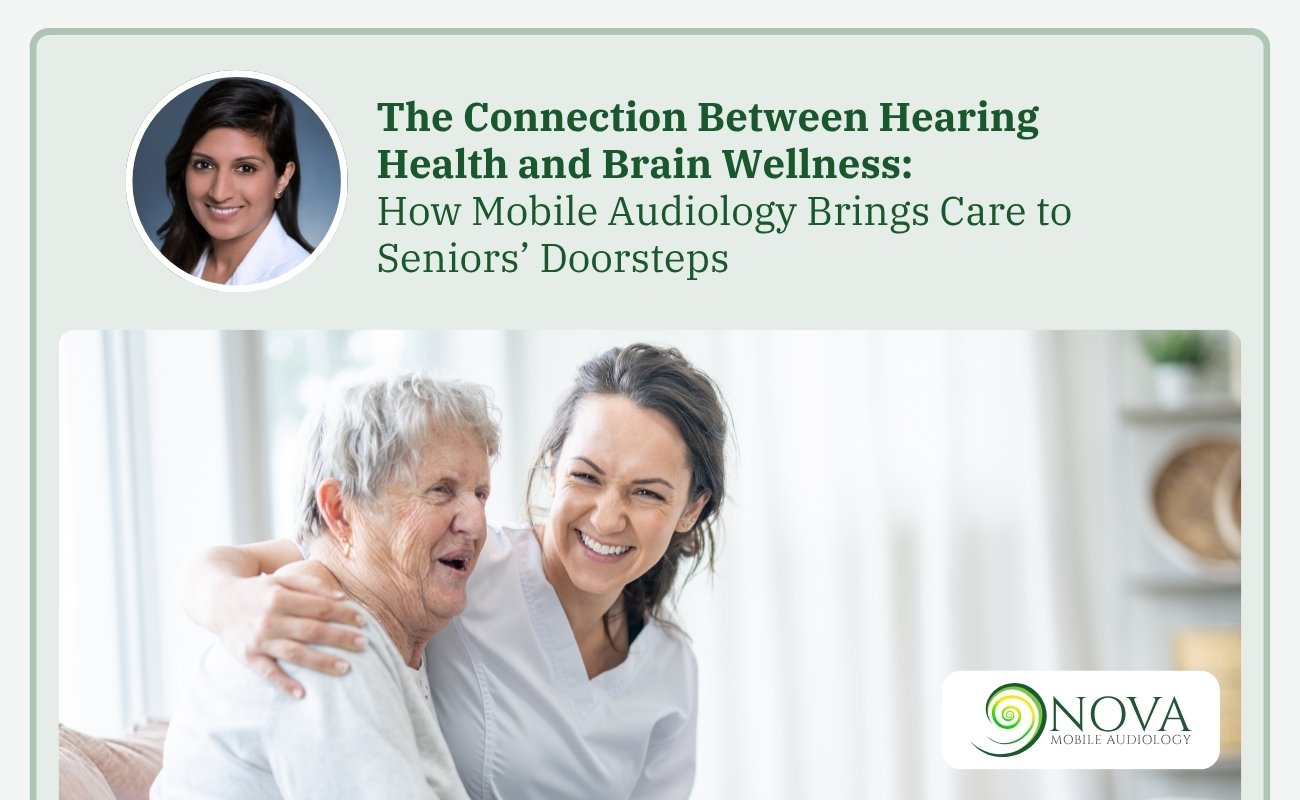The Connection Between Hearing Health and Brain Wellness: How Mobile Audiology Brings Care to Seniors’ Doorsteps

The Overlooked Link Between Hearing and Brain Health
Hearing is more than just the ability to perceive sound—it plays a vital role in maintaining cognitive health, emotional well-being, and overall quality of life. For older adults, untreated hearing loss can have far-reaching effects beyond communication challenges. Research has shown that hearing loss is closely linked to cognitive decline, memory issues, and even an increased risk of dementia. When the brain must work harder to process unclear sounds, it diverts energy from other cognitive functions, leading to mental fatigue and reduced sharpness over time.
How Hearing Loss Affects Cognitive Function
The brain thrives on stimulation. When hearing diminishes, the auditory centers of the brain receive less input, which can cause these areas to weaken. This lack of stimulation can accelerate cognitive decline. Additionally, hearing loss often leads to social withdrawal, as conversations become more difficult to follow. Reduced social engagement further limits mental activity, creating a cycle that can negatively impact brain health.
Maintaining good hearing health helps keep the brain active and engaged. Early detection and treatment of hearing loss—through hearing aids or other interventions—can significantly reduce the risk of cognitive decline and improve overall mental well-being.
The Benefits of Mobile Audiology for Seniors
Accessing hearing care can be challenging for many seniors, especially those living in retirement or senior communities. Transportation barriers, mobility limitations, and the inconvenience of scheduling appointments can delay essential hearing evaluations. Mobile audiology eliminates these obstacles by bringing professional hearing care directly to residents' doors.
Mobile audiology services provide comprehensive hearing assessments, ear cleanings, hearing aid fittings, and follow-up care—all within the comfort of familiar surroundings. This personalized, on-site approach ensures that seniors receive consistent, high-quality care without the stress of travel or long clinic visits.
Concierge Hearing Care: Comfort, Convenience, and Connection
Concierge mobile audiology is designed with seniors' needs in mind. By offering flexible scheduling and individualized attention, it allows residents to maintain their independence while prioritizing their hearing and cognitive health. On-site visits also create opportunities for family members and caregivers to be involved in the process, ensuring better communication and long-term success with hearing solutions.
Beyond convenience, mobile audiology fosters trust and continuity of care. Regular visits help monitor hearing changes over time, adjust hearing aids as needed, and provide education on ear health and device maintenance—all contributing to better outcomes and improved quality of life.
Supporting Healthy Aging Through Hearing Care
Healthy hearing supports healthy aging. By addressing hearing loss early and maintaining regular checkups, seniors can preserve their cognitive function, stay socially active, and enjoy a more fulfilling life. Mobile audiology makes this possible by removing barriers to care and delivering expert hearing services directly to where seniors live.
Conclusion
Hearing health is a cornerstone of brain wellness and overall vitality. With mobile audiology, seniors in retirement and senior communities can access professional, compassionate hearing care without leaving home. This convenient, concierge approach not only enhances hearing but also supports cognitive health, emotional well-being, and a stronger connection to the world around them.
References
- Johns Hopkins University research by Dr. Frank Lin and colleagues, which links untreated hearing loss to cognitive decline and dementia risk.
- The Lancet Commission on Dementia Prevention, Intervention, and Care (2020), which identifies hearing loss as a modifiable risk factor for dementia.
- National Institute on Deafness and Other Communication Disorders (NIDCD) for general statistics on hearing loss in older adults.
- American Speech-Language-Hearing Association (ASHA) for information on hearing health and aging.

